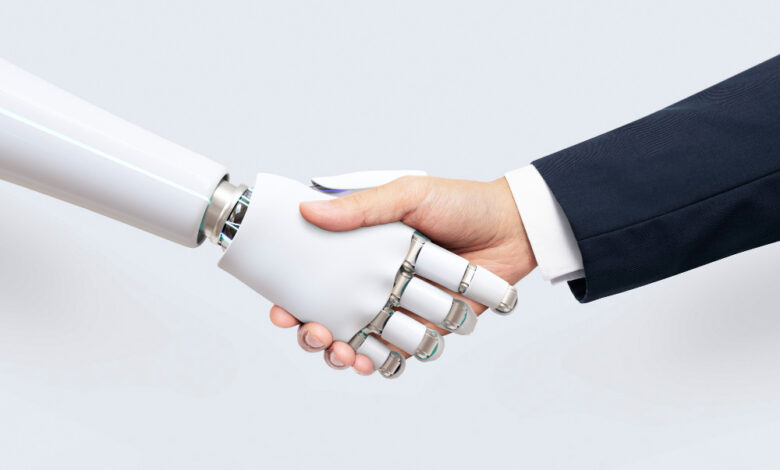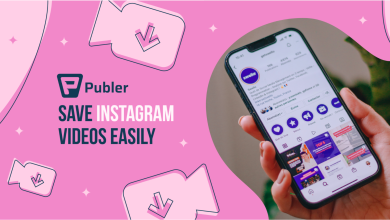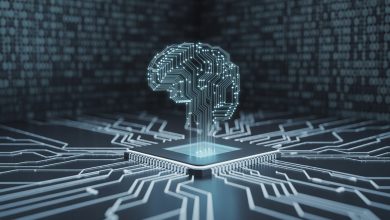
Remember when B2B event marketing meant printing badges, crossing your fingers for good attendance, and hoping your follow-up emails didn’t end up in spam folders? Those days are quickly becoming history.
AI is reshaping how companies approach event marketing, turning guesswork into data-driven strategies that deliver measurable results. It can be an incredibly valuable tool, as long as you know how to make the most of it effectively.
In this article, we explore the applications of AI in the B2B event marketing sphere.
What is B2B Event Marketing?
B2B event marketing is a type of marketing that utilises events to promote businesses’ services to other businesses. It encompasses everything from intimate executive roundtables to massive trade shows where thousands of professionals gather to network, learn, and explore new business opportunities.
Unlike consumer marketing, when you’re marketing in B2B sectors, events focus on building relationships that often take months or years to mature into partnerships. The stakes are high—a single successful connection at an event could result in a six-figure deal. That’s why getting the strategy right matters so much.
Getting Started with AI
Identifying high-impact, low-complexity AI applications should be your first step to bring in this kind of technology to the event marketing approach. To begin with, you should make a note of how you currently manage any work relating to events, and then look for areas that could be optimised with the help of AI.
A good idea is to start with areas where you already collect data but struggle with analysis. Email engagement patterns, registration timing, and basic attendee demographics offer excellent starting points for AI implementation without requiring massive infrastructure changes.
You might also be considering purchasing tools and systems that use AI to complete more complicated but relevant tasks. Many companies find success with hybrid approaches, where they use vendor solutions for complex tasks like predictive modelling while developing simpler automation workflows in-house.
Remember that ROI measurement frameworks for AI initiatives need to be established early. Define clear metrics like cost per qualified lead, attendance prediction accuracy, and conversion rate improvements. Without these benchmarks, you’ll struggle to justify continued AI investments or identify which tools actually move the needle.
Common AI Marketing Challenges & Solutions
As part of this introduction to how AI can assist with B2B marketing, we wanted to highlight some of the most common challenges that businesses often run into, as well as the best solutions to overcome them.
Problem: Data privacy and compliance considerations have become increasingly complex over the past few years. GDPR, CCPA, and other regulations require careful handling of attendee information, especially when using AI for behavioural analysis or predictive modelling.
Solution: The key is building privacy protection into your AI workflows from the start, not as an afterthought.
Problem: Integration with existing marketing technology stacks often proves more challenging than expected.
Solution: Your CRM, email platform, event management system, and analytics tools all need to communicate effectively. Many teams underestimate the time required for proper integration and end up with disconnected data silos.
Problem: Change management for marketing teams requires patience and clear communication. Some marketers worry AI will replace human creativity and intuition and may be resistant to the introduction of new technology.
Solution: AI handles the heavy analytical lifting so teams can focus on strategy, relationship building, and creative campaign development.
Problem: Measuring AI impact on event success metrics demands new approaches to attribution. Traditional last-touch models don’t capture AI’s influence on attendee experience, lead quality improvements, or operational efficiency gains.
Solution: Multi-touch attribution and longer measurement windows will provide more accurate pictures of AI’s value.
How Can AI Help with B2B Event Marketing?
For the final section of this guide to AI and B2B event marketing, here are some of the best ways that you can use AI technology to assist with your marketing efforts.
Predictive Analytics & Attendee Behaviour
Machine learning models that are used for predicting attendance likelihood can analyse historical registration patterns, industry trends, and individual behavioural signals. These tools can then be used to forecast who’ll actually show up, which helps with everything from catering orders to booth staffing decisions.
Behavioural pattern analysis done by AI can be used for session recommendations to create personalised agendas based on attendee interests, job roles, and past engagement history. Instead of generic session suggestions, you can use this technology to give every attendee curated recommendations that align with their professional goals.
Finally, you can use AI for ROI forecasting based on historical data to help justify event budgets and optimise resource allocation. By analysing past events’ performance metrics against various factors like industry conditions, speaker lineups, and marketing spend, AI can predict likely outcomes for future events.
Dynamic Content Delivery
Content is one of the easiest areas in which you can implement AI to help optimise the way that you work. For example, adaptive email marketing campaigns adjust messaging, timing, and content based on individual response patterns and engagement history, which typically yields higher open rates and better conversion metrics than one-size-fits-all campaigns.
Another example is automated content generation for personalised follow-ups creates tailored messages based on each attendee’s event experience. Rather than generic “thanks for attending” emails, recipients could get personalised content that references sessions they attended and connections they made.
On a more basic level, you can use AI content creation tools to help save time when it comes to actually producing the marketing content that you need to attend a B2B event. Whilst training an AI agent on your brand’s specific style and tone of voice is an initial time investment, once you’ve perfected the output, you’ll be able to generate large amounts of content in very little time at all.
Natural Language Processing (NLP)
Natural language processing is an application of AI that allows computers to interpret and generate human language, which can be a really useful tool to use when it comes to feedback and reviews. NLP algorithms can identify specific pain point themes in post-event feedback, highlight successful elements, and surface actionable insights from thousands of survey responses.
Real-time social media monitoring during events also tracks mentions, sentiment, and trending topics as they unfold. This enables rapid response to issues and opportunities to amplify positive buzz while events are still happening.
Chatbots or AI agents can be used for attendee support and lead qualification, handling routine enquiries while identifying high-value prospects. More advanced chatbots can be used to schedule meetings, answer product questions, and route qualified leads to appropriate sales team members.
Event Planning Automation
Whether you’re the one hosting the event or are just attending as an exhibitor, there’s always a lot of planning to be done. AI can be used to automate plenty of the more straightforward and repetitive tasks, freeing your time up for more important planning.
Venue selection algorithms based on multiple criteria can be created to evaluate locations considering factors like attendee demographics, travel costs, capacity requirements, and historical performance data. You can also optimise your supply chain with AI to streamline vendor selection, inventory management, and resource allocation based on predicted attendance and historical consumption patterns.
Quality networking opportunities often drive attendance decisions for future events, but creating the ideal meeting schedules for all of your attendees can be immensely time-consuming. Instead, AI can be used to generate personalised networking recommendations that match attendees with relevant connections based on company profiles, job functions, and stated objectives.
Speaker matching using NLP and expertise analysis can also help to identify presenters whose backgrounds and speaking topics align with audience interests and event objectives.
Let AI Transform Your Event Marketing
The shift from traditional event marketing to AI-powered strategies isn’t just about adopting new technology. It’s about fundamentally changing how you understand and serve your audience. Companies that embrace AI tools now will have significant advantages in attendee satisfaction, operational efficiency, and revenue generation.
Start small, measure everything, and gradually expand your AI capabilities as you build confidence and expertise. The future of B2B event marketing is already here, and it’s more personalised, predictable, and profitable than ever before.





